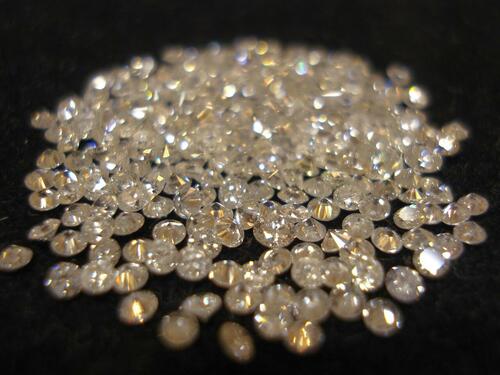
The U.S. and its Western allies have unleashed a barrage of economic sanctions to punish Russia for its invasion of Ukraine. A critical element in that strategy is to limit Russian exports of commodities, such as crude oil to diamonds, to cause maximum economic pain in Moscow. Though the strategy has backfired as Russia's oil revenues soar, the diamond trade is the latest export to be revived near pre-war levels.
Bloomberg reported that Russian mining giant Alrosa PJSC ramped up its diamond exports to near pre-Ukraine invasion levels.
Readers may recall the +$80 billion industry diamond industry was thrown into chaos earlier this year when the U.S. Department of the Treasury's Office of Foreign Assets Control (OFAC) hit Alrosa with sanctions, reducing 30% of the world's rough stones supplies.
Alrosa is one of the world's largest diamond miners, responsible for 90% of Russia's rough stone output. OFAC's sanctions on the miner resulted in all of its clients and other counterparties immediately halting transactions in early April.
By late April, we noted that Russian rough stone supplies had stopped flowing to Surat, India, the mecca of diamond cutting and polishing. We pointed out that traders and manufacturers were searching for workarounds due to OFAC's sanctions disrupting payments via Indian banks to Alrosa.
So fast forward to late August, and Alrosa is back, selling more than $250 million of diamonds a month, which is approximately $50 to $100 million below pre-war levels. It appears Indian banks have figured out ways to bypass OFAC's sanctions and are "more comfortable with how to facilitate transactions in currencies other than U.S. dollars," Bloomberg said.
"There is no indication that any sales have breached sanctions or laws. But there is still a widespread unease about the implications of dealing in Russian goods," Bloomberg noted.
The return of one of the world's top diamond producers is another sign that Western sanctions against Russia are failing. Six months after the invasion, Russia's economy has yet to nosedive and implode, though sanctions entirely backfired on Europe amid energy hyperinflation and mounting recession risks.
The biggest takeaway is that Russia and the rest of the world are finding workarounds to the Western economic blockade, which shows the era of America's unipolar world order is nearing its end.
The U.S. and its Western allies have unleashed a barrage of economic sanctions to punish Russia for its invasion of Ukraine. A critical element in that strategy is to limit Russian exports of commodities, such as crude oil to diamonds, to cause maximum economic pain in Moscow. Though the strategy has backfired as Russia’s oil revenues soar, the diamond trade is the latest export to be revived near pre-war levels.
Bloomberg reported that Russian mining giant Alrosa PJSC ramped up its diamond exports to near pre-Ukraine invasion levels.
Readers may recall the +$80 billion industry diamond industry was thrown into chaos earlier this year when the U.S. Department of the Treasury’s Office of Foreign Assets Control (OFAC) hit Alrosa with sanctions, reducing 30% of the world’s rough stones supplies.
Alrosa is one of the world’s largest diamond miners, responsible for 90% of Russia’s rough stone output. OFAC’s sanctions on the miner resulted in all of its clients and other counterparties immediately halting transactions in early April.
By late April, we noted that Russian rough stone supplies had stopped flowing to Surat, India, the mecca of diamond cutting and polishing. We pointed out that traders and manufacturers were searching for workarounds due to OFAC’s sanctions disrupting payments via Indian banks to Alrosa.
So fast forward to late August, and Alrosa is back, selling more than $250 million of diamonds a month, which is approximately $50 to $100 million below pre-war levels. It appears Indian banks have figured out ways to bypass OFAC’s sanctions and are “more comfortable with how to facilitate transactions in currencies other than U.S. dollars,” Bloomberg said.
“There is no indication that any sales have breached sanctions or laws. But there is still a widespread unease about the implications of dealing in Russian goods,” Bloomberg noted.
The return of one of the world’s top diamond producers is another sign that Western sanctions against Russia are failing. Six months after the invasion, Russia’s economy has yet to nosedive and implode, though sanctions entirely backfired on Europe amid energy hyperinflation and mounting recession risks.
The biggest takeaway is that Russia and the rest of the world are finding workarounds to the Western economic blockade, which shows the era of America’s unipolar world order is nearing its end.







